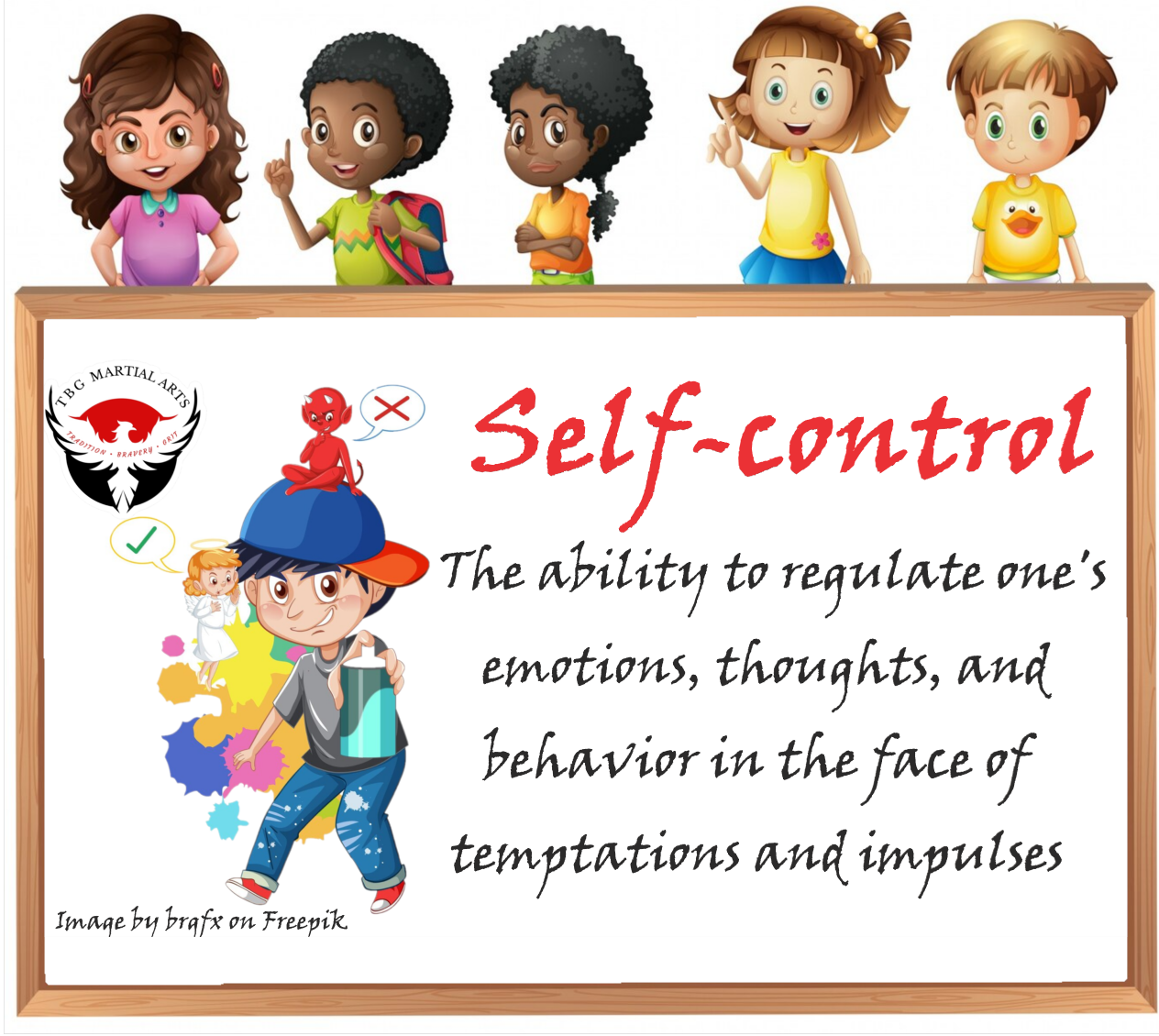Word of the Week #15

Mastering the Mind and Body
Taekwondo, the Korean martial art known for its dynamic kicks and powerful strikes, extends beyond physical prowess. At its core lies a profound lesson in self-control—a skill that transcends the dojang (training hall) and permeates every aspect of life. Let’s explore how Taekwondo cultivates self-control and why it’s essential for practitioners.
1. The Stillness Within Movement
In Taekwondo, every kick, punch, and block is deliberate. Practitioners learn to harness their energy, focusing not only on the external execution but also on the internal stillness. The breath becomes a guide—a rhythm that tempers impulsiveness. Whether breaking boards or sparring, self-control ensures precision and safety.
2. The Art of Patience
Taekwondo forms (poomsae) demand patience. Each movement flows seamlessly into the next, requiring mental discipline. Practitioners learn that haste disrupts the flow. By practicing poomsae diligently, they develop patience—a virtue that extends beyond the mat.
3. Emotional Regulation
Emotions run high during sparring. Fear, excitement, and adrenaline surge. Yet, Taekwondo teaches emotional regulation. A calm mind makes split-second decisions—when to attack, when to defend. Self-control prevents reckless aggression and promotes strategic thinking.
4. The Power of Choice
Taekwondo practitioners face choices daily:
- To retaliate or show restraint?
- To push through fatigue or give in?
- To maintain respect even when provoked?
Self-control empowers them to choose wisely. It’s not weakness; it’s strength under control.
5. The Belt System and Progression
Advancing through belt ranks requires dedication and consistency. Self-control ensures that practitioners adhere to training schedules, even when motivation wanes. The journey from white belt to black belt epitomizes discipline and delayed gratification.
6. The Mind-Body Connection
Taekwondo unites mind and body. The physical movements mirror mental states. When the mind wanders, kicks lose power. Self-control anchors the mind, enhancing technique and focus.
7. The Role of Respect
Taekwondo etiquette emphasizes respect for instructors, opponents, and fellow students. Self-control manifests as bowing, listening attentively, and treating others with kindness. It’s not just about technique; it’s about character.
Beyond the Kicks
Taekwondo’s true mastery lies in self-control. It’s the ability to pause before reacting, to channel energy purposefully, and to honor the art’s traditions. As practitioners, we learn that the greatest battles occur within—the battle to remain centered, composed, and respectful. So, step onto the dojang with intention. Train your body, but also train your mind. In Taekwondo, self-control isn’t a constraint; it’s liberation. Whether you’re a white belt or a seasoned black belt, self-control remains the cornerstone of Taekwondo. 🥋
Are you ready to reap the benefits of Martial Arts training?
Begin your journey today!
Have Questions?
Thank you!
A member of our staff will be contacting you soon. Can't wait to see you on the mat!

